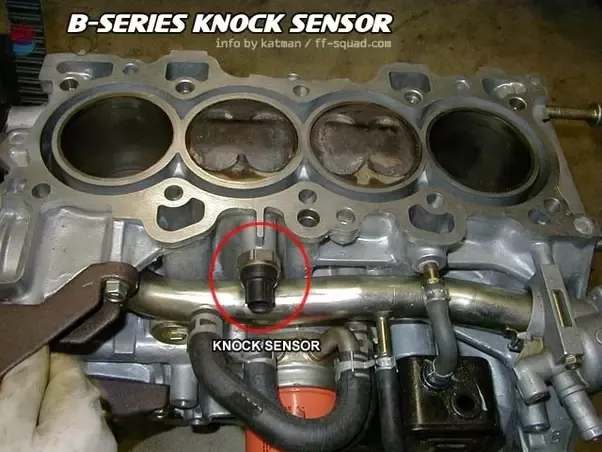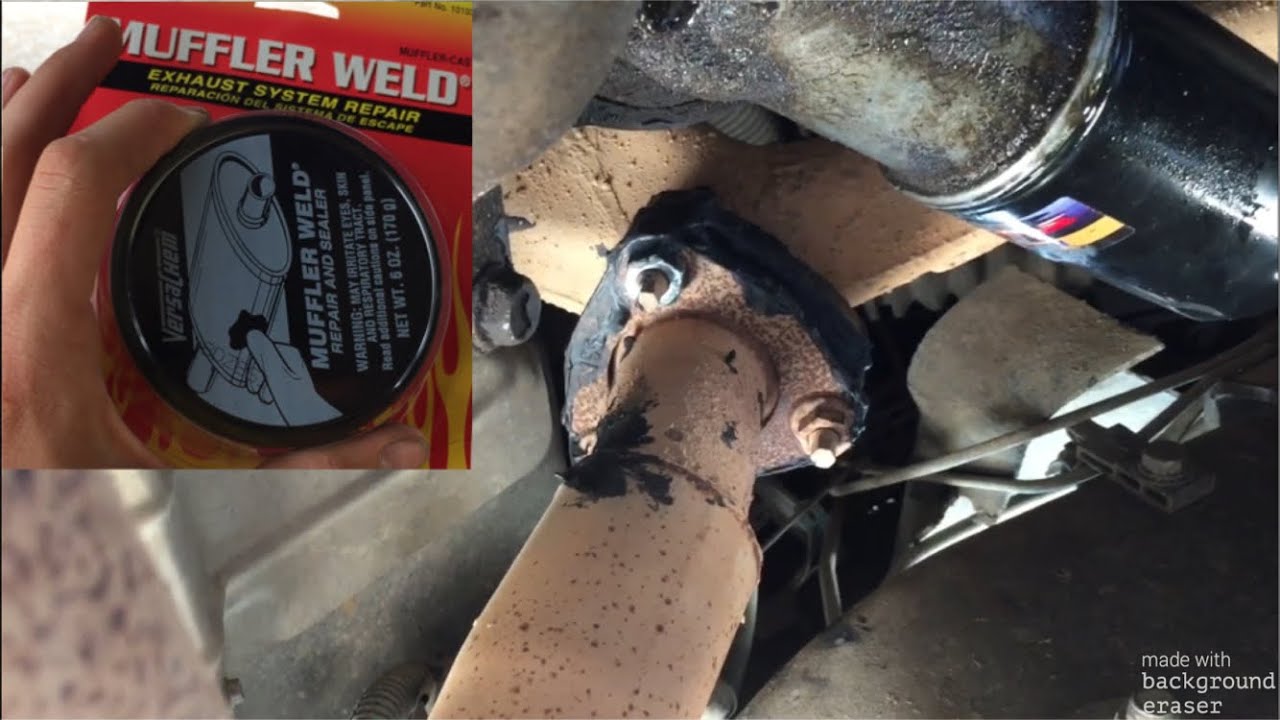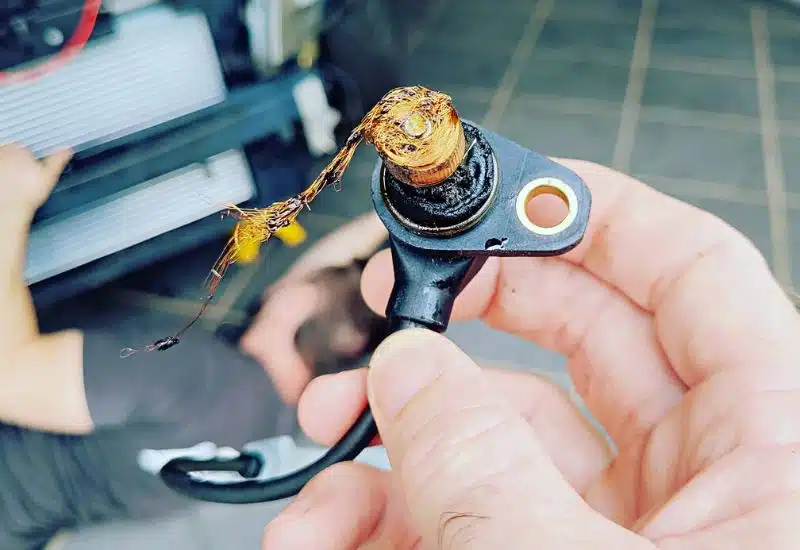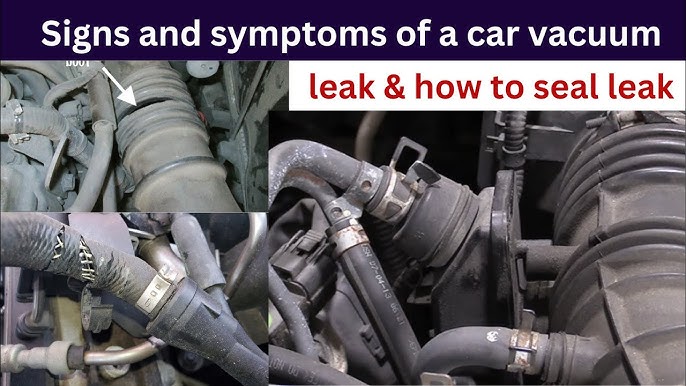Can a Bad Coil Pack Cause a Lean Condition
Yes, a bad coil pack can cause a lean condition by failing to provide adequate spark, leading to incomplete combustion. This deficiency may prompt an engine to compensate by using more air than fuel, creating a lean mixture.
In the intricate workings of a vehicle’s engine, a coil pack plays a crucial role in ensuring a perfect air-to-fuel ratio. A faulty ignition coil can disrupt this balance, sparking a series of performance issues. Lean conditions refer to the engine receiving too much air compared to fuel, which can trigger trouble codes and illuminate the check engine light.
Vehicle owners must be vigilant about such symptoms, because running lean not only affects drivability but can also cause long-term damage to the engine. Immediate attention to the coil pack can save one from costly repairs down the line, maintaining engine health and ensuring optimal functionality.
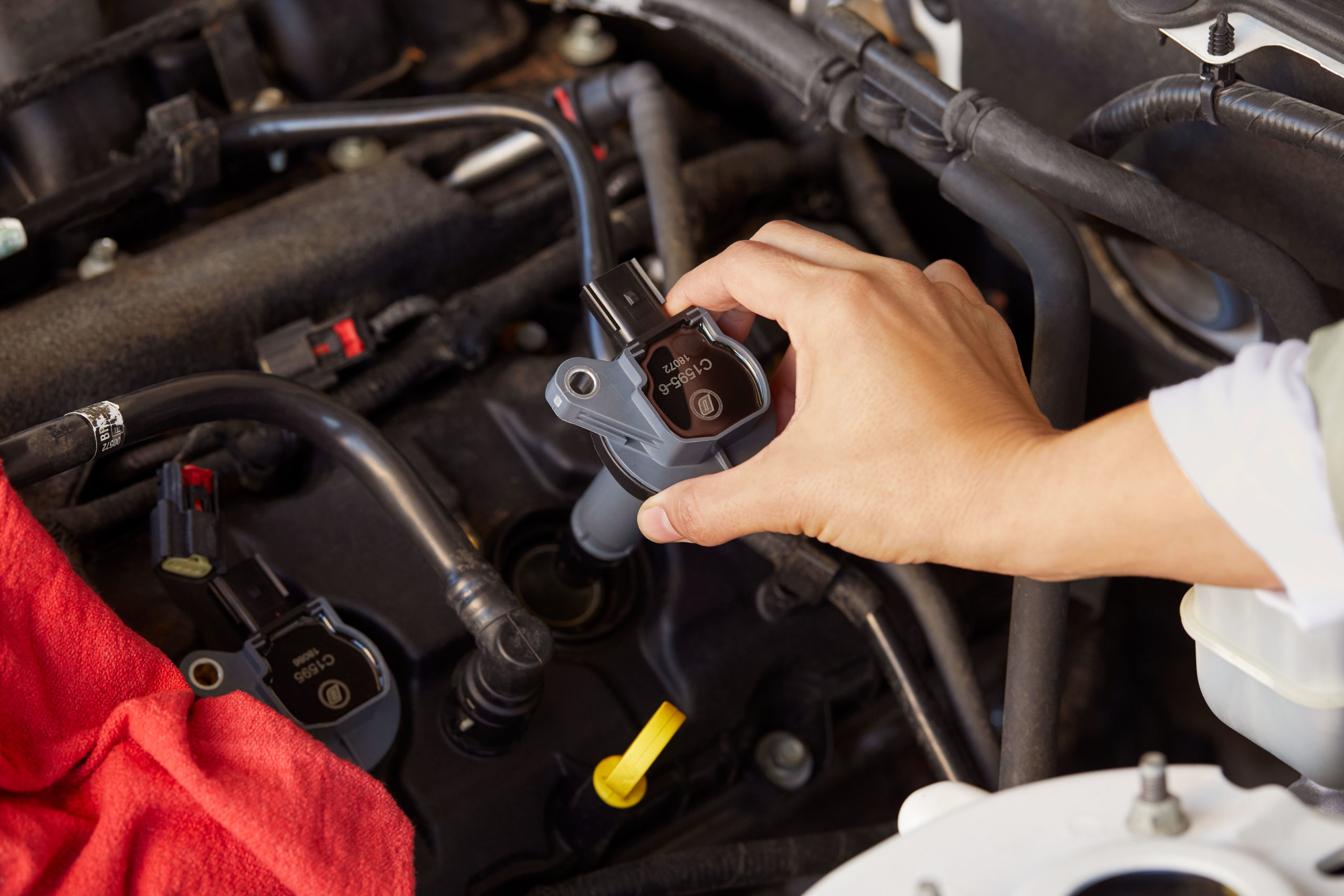
Credit: www.autozone.com
Introduction To Coil Packs And Engine Lean Conditions
Welcome to the intricate world of automotive functionality where components like coil packs play a pivotal role in your vehicle’s performance. A seamless drive is often taken for granted until troubling symptoms arise, such as a lean condition in the engine. This introduction delves into the essence of coil packs and how they could potentially be linked to engine complications.
The Role Of Coil Packs In Vehicle Ignition Systems
At the heart of your vehicle’s ability to ignite the fuel-air mixture within the engine lies a crucial component known as the coil pack. The coil pack’s main job is to convert the low battery voltage into thousands of volts needed to create an electric spark in the spark plugs. This ignites the fuel.
Without a functional coil pack, your car’s engine may suffer from misfires or might not start at all. It’s a vital piece in the puzzle of automotive ignition, dictating the efficiency and power of your engine.
Lean Condition In Engines: Causes And Symptoms
A lean condition in an engine occurs when there’s too much air and too little fuel in the combustion chamber. It upsets the delicate balance needed for optimal combustion. This can lead to a range of problems, such as:
- Poor engine performance
- Decreased fuel economy
- Engine hesitation or surging
The causes of a lean condition can be varied, involving:
- Faulty oxygen sensors
- Clogged fuel injectors
- Worn fuel pumps
- Leaks in the intake manifold
The question remains: Can a faulty coil pack contribute to this lean scenario? Let’s explore further in the blog.
Credit: www.reddit.com
Diagnosing Engine Performance Issues
A vehicle’s heartbeat relies on a symphony of components working in perfect harmony. Among these, the coil pack plays a pivotal role in engine performance. A faulty coil pack may lead to a lean condition, where the air-to-fuel ratio skews too much towards air. This imbalance can wreak havoc on engine function. Understanding the signs and diagnosing a lean condition is crucial for maintaining your car’s health and performance.
Common Signs Of A Failing Coil Pack
Recognizing the early warnings can prevent more serious damage to your engine. Signs of a failing coil pack include:
- Engine misfires, causing the engine to stumble or lose power.
- Unexplained loss of fuel economy, meaning more gas station visits.
- Check engine light glowing on the dashboard, hinting at trouble.
- An engine that sputters or stalls, which can be risky during operation.
Tools For Diagnosing A Lean Condition
To pin down the root cause of a lean condition, certain tools are essential:
- A code reader or scanner to check for engine codes.
- Fuel pressure gauge to test the fuel system’s pressure.
- Vacuum gauge to detect air leaks affecting the air-to-fuel ratio.
- An O2 sensor tool to assess oxygen sensor performance.
These tools, together with a careful inspection, can lead to a diagnosis. Identifying a bad coil pack early can save time and money, and keep your vehicle running smoothly.
Link Between Coil Packs And Air-fuel Mixture
Your vehicle’s performance hinges on the precision of its air-fuel mixture. This delicate balance can be disrupted by faulty components, such as a bad coil pack. Understanding the role of coil packs in maintaining the optimal air-fuel ratio is crucial for vehicle health.
How Ignition Systems Affect Fuel Combustion
The ignition system’s key player is the coil pack. It boosts the battery’s voltage to ignite the fuel. This spark must happen at just the right moment for efficient combustion. Precise timing leads to a perfect air-fuel mix, maximizing power and economy.
- Optimal Spark: Promotes complete fuel burn.
- Engine Efficiency: Improves performance and emissions.
- Power Output: Depends on the spark’s quality.
Impact Of Weak Spark On Engine Air-fuel Ratio
A weak spark from a bad coil pack can trigger incorrect fuel burning. This often results in a lean condition, where there’s too much air and not enough fuel.
| Issue | Effect on Engine | Effect on Air-Fuel Mix |
|---|---|---|
| Weak Spark | Reduced power | Lean condition |
| Misfires | Unpredictable acceleration | Unburnt fuel exits exhaust |
| Bad Coil Pack | Stalling and rough idling | Poor fuel economy |
Recognize these signs early to safeguard your engine’s operation. A timely coil pack replacement can restore the right air-fuel mix.
Consequences Of Ignoring Coil Pack Problems
Car maintenance is essential to keep it running smoothly. A part often overlooked is the coil pack. It’s an integral component of your car’s ignition system. Ignoring coil pack issues can lead to costly repairs. Let’s explore the effects of not addressing a faulty coil pack.
Potential Damage To Engine Components
Neglecting a bad coil pack can spell trouble for your vehicle’s engine. The coil pack provides the spark that ignites the fuel-air mixture in the engine. If it fails, this can cause a lean condition. A lean condition means there’s too much air and not enough fuel in the engine. This imbalance can lead to overheating and increased friction.
- Oxygen Sensors: They might fail due to incorrect combustion conditions.
- Catalytic converter: It can get damaged from overheating.
- Spark Plugs: They wear out faster because of misfires.
- Pistons and valves: They suffer from excess heat and wear.
Long-term Effects On Vehicle Performance
Failing to fix a bad coil pack not only hurts the engine but also affects overall vehicle performance. Consistent misfires disrupt engine power and fuel economy. A lean mixture can cause knocking which damages the engine.
| Performance Aspect | Effect of Ignoring Coil Pack |
|---|---|
| Fuel Efficiency | Drops, costing more money on fuel |
| Engine Power | Reduces, leading to sluggish acceleration |
| Emissions | Increases, potentially failing emissions testing |
| Engine Life | Shortens due to continuous strain |
Ignoring coil pack problems is a risk not worth taking. It affects not just the engine but also your safety and wallet. Regular checks can save you from these hassles. Keep your vehicle’s performance at its peak by tackling coil pack issues head-on.
Troubleshooting And Repairing Coil Pack Issues
Troubleshooting and repairing coil pack issues is essential when facing an engine that runs lean. A faulty coil pack may not deliver the spark needed for proper combustion. This can cause a lean mixture of fuel and air. The process of checking coil packs helps identify the problem. Knowing when to replace them is equally important. Here is a practical approach to handle such issues with precision.
Step-by-step Guide To Checking Coil Packs
- Inspect visually: Look for cracks or damage on the coil pack’s body.
- Check for dirt or corrosion: Connections should be clean and secure.
- Test resistance: Use a multimeter to check the coil pack’s resistance level.
- Compare readings: Match results with the manufacturer’s specifications.
- Examine spark: A spark tester can verify the coil’s ability to produce a spark.
Checks require careful attention. Disconnecting battery terminals is a safety step. Wear protective gear. Follow the car’s manual for accuracy. Keeping tools and testers in good condition is also crucial.
When To Replace: Repair Or Upgrade Coil Packs
- Erratic idling: Rough idling may signal failing coils.
- Misfires or poor power delivery: These symptoms could point to replacement.
- Fuel economy: Noticing a drop suggests checking the coil packs.
- Check engine light: The light may turn on due to coil pack issues.
| Condition | Repair | Replace |
|---|---|---|
| Minor wear | Possible | Maintenance |
| Serious damage | Not Advisable | Necessary |
Deciding on repairing or upgrading involves assessing condition and performance. A simple repair might not suffice for heavily damaged packs. Upgrading could result in better performance. Match new coil packs with the engine’s requirements. Quality replacements ensure long-lasting outcomes. It’s always wise to consider a professional mechanic for accurate diagnosis.
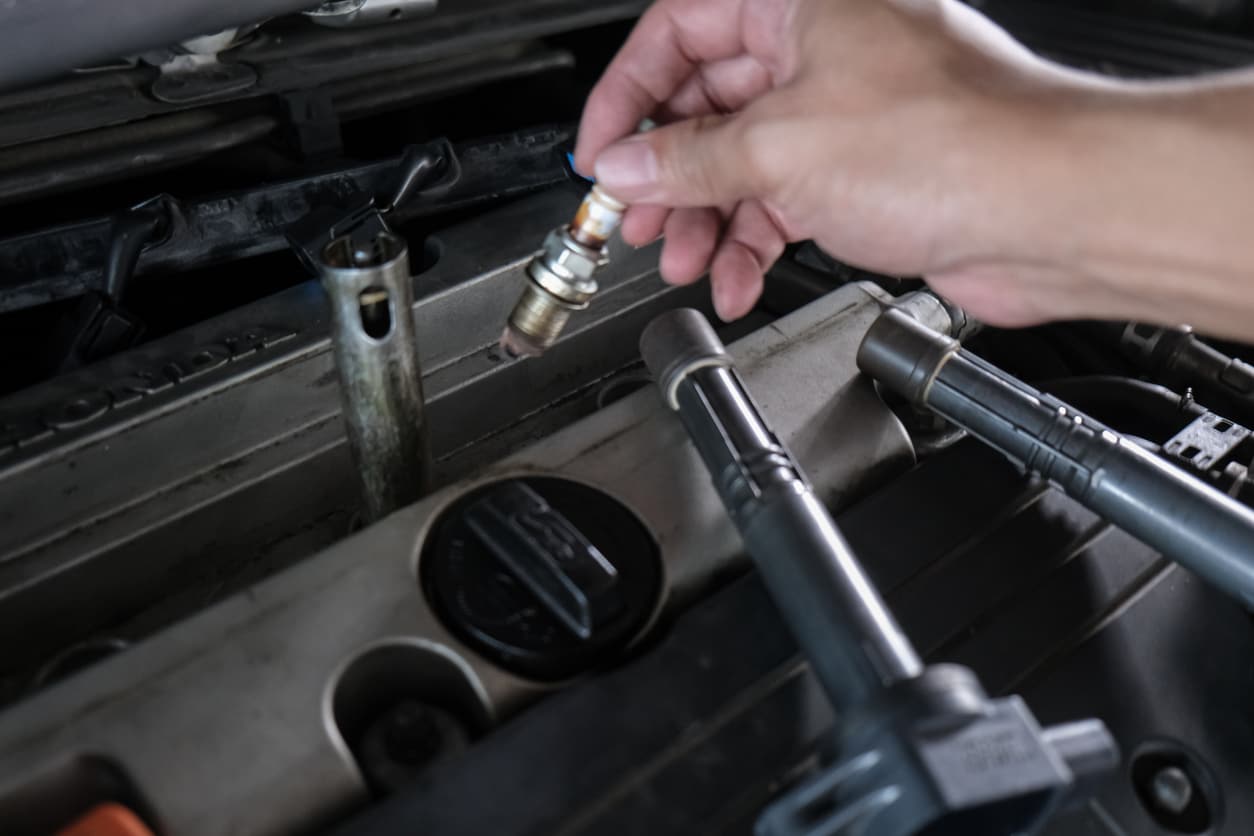
Credit: www.firestonecompleteautocare.com
Preventative Maintenance To Avoid Lean Conditions
Ensuring your vehicle stays in prime condition means being proactive in maintenance. A lean condition can stem from a bad coil pack. This affects the air-to-fuel ratio. Let’s explore how regular maintenance and quality parts can prevent such issues.
Regular Vehicle Maintenance Tips
- Check spark plugs: They need replacement at certain intervals. A misfiring plug can cause a lean mix.
- Inspect filters: Dirty air and fuel filters restrict flow, leading to lean conditions.
- Scan for codes: Use a code reader to catch lean condition codes early.
- Monitor fuel pressure: Low pressure contributes to a lean mixture.
- Listen to your engine: Rough idles or misfires often indicate problems.
Selecting Quality Coil Packs For Longevity
Investing in high-quality coil packs is critical. Avoid cheap knock-offs. Opt for brands with a proven track record. Look for warranties or guarantees. It shows the manufacturer stands behind their product. Quality coil packs ensure consistent ignition leading to a balanced air-fuel mixture.
By following these preventative maintenance tips and choosing the right coil packs, you can keep your vehicle running smoothly and avoid the pitfalls of a lean condition.
Frequently Asked Questions On Can A Bad Coil Pack Cause A Lean Condition
Can A Faulty Coil Pack Trigger A Lean Code?
A bad coil pack can result in incomplete combustion, leading to a lean condition. This happens as the engine receives insufficient spark, causing less fuel to burn, which in turn can trigger a lean code from the engine’s computer system, indicating an improper air-to-fuel ratio.
What Symptoms Indicate A Coil Pack Issue?
Symptoms of a problematic coil pack include engine misfires, rough idling, poor acceleration, and decreased fuel efficiency. Check Engine Light may also illuminate, signaling a need for coil pack inspection or replacement to restore proper engine function.
How Does A Lean Condition Impact Engine Performance?
A lean condition, where too much air and not enough fuel are mixed, negatively affects engine performance. It can cause rough idling, hesitation during acceleration, and potential damage to engine components over time due to overheating and undue strain.
Will Replacing A Coil Pack Resolve A Lean Condition?
Replacing a coil pack can resolve a lean condition if the pack was the root cause. However, it’s crucial to diagnose the issue properly, as other factors can also lead to a lean condition, such as vacuum leaks or faulty fuel injectors.
Conclusion
Understanding your vehicle’s ignition system is crucial for maintaining engine health. A faulty coil pack can indeed prompt a lean condition, risking further damage. Regular checks can prevent such issues. Address coil pack problems promptly for optimal engine performance and longevity.
Drive safe, knowing you’re informed and prepared.

